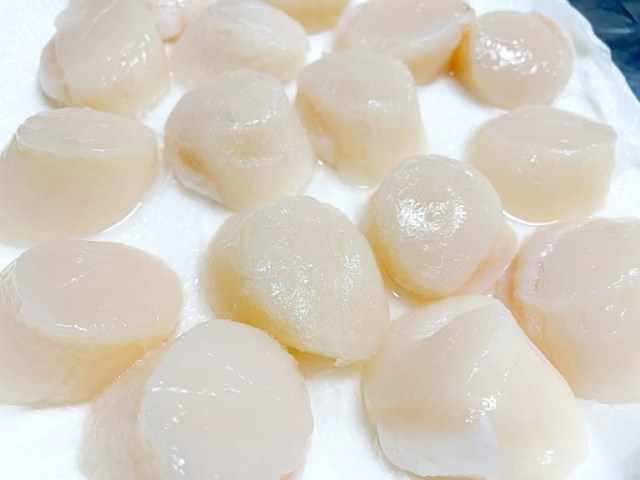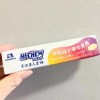
The spirit of Operation Tomodachi lives on.
China is currently banning the import of all seafood from Japan. The policy went into effect in late August, at the same time as Japan began the release of treated water from the Fukushima Daiichi Nuclear Power Plant into the ocean.
The Chinese government says the policy is a health and safety measure. However, with the two countries’ administrations regularly butting heads over territorial, economic, and historical disputes, the seafood ban has been seen by critics as less about food safety, and more about trying to score political points against Japan. The release of the treated water has been approved by the International Atomic Energy Agency, who spent two years evaluating the plan and determined that it does not represent any health risk to consumers of Japanese seafood, lending further weight to the theory that the Chinese government is exploiting the situation as an opportunity to attempt to take Japanese products down a peg.
Regardless of the motivations, though, the ban remains in place, and with China ordinarily being the largest importer of Japanese seafood, it’s a rough development for fishermen in Japan. However, they’ve gained a new customer/ally, as the U.S. military has purchased 800-plus kilograms (1,763 pounds) of scallops.
To support the Japanese seafood industry affected by the PRC ban, the U.S. military purchased 800 to 900 kilograms of Hokkaido scallops. The first delivery arrived at Yokota Air Base on October 31st, where a ribbon cutting ceremony took place to celebrate the first sale of… pic.twitter.com/vgaJEBa39l
— アメリカ大使館 (@usembassytokyo) November 2, 2023
In the above video from the U.S. embassy in Japan’s official Twitter account, ambassador Rahm Emanuel introduces the initiative, asserting that Japanese seafood is safe. “I have served the products to my own children [and] to some of the highest-elected officials in the United States Government and Armed Forces,” Emanuel says, adding “I can tell you, after being here for 20 months, [Japanese has] some of the best fish that I’ve eaten anywhere in the world.”
The scallops will be served in chow halls at U.S. military installations in Japan, as well as served in their restaurants and sold in their commissaries (supermarkets, in civilian-speak).
In the video, Emanuel mentions Operation Tomodachi (meaning “Operation Friends”), a humanitarian aid program carried out by Japan-stationed U.S. armed forces personnel for the people of the Tohoku region in the days following the March 11, 2011 earthquake and tsunami which involved over 200 ships and aircraft. “This spirit is carrying forward,” Emanuel says. “It started in Fukushima a little over a decade ago, and we’re going to continue to stand shoulder to shoulder.”
中国の禁輸措置を受けた産業を支援することを目的に、米軍は約800~900キロの北海道産のホタテを購入しました。10月31日に最初の入荷分が到着した横田基地で、米軍基地での日本産水産物の初販売を祝うテープカットが行われました。🇺🇸🇯🇵 https://t.co/O4Gd2gcHet
— アメリカ大使館 (@usembassytokyo) November 2, 2023
The embassy also posted a Japanese-language version of the tweet, which has prompted reactions from Japanese commenters including:
“To the American embassy, ambassador Rahm Emanuel, and the people of Yokota (Air) Base, thank you so much. I will never forget this kindness. This second Operation Tomodachi is bringing tears to my eyes.”
“I’m still grateful for the first Operation Tomodachi.”
“Japan and the U.S. are friends.”
“Thank you! I’m going to eat scallops for dinner tonight too.”
“Thank you, tomodachi! I’m curious to see what kind of recipes you make with these scallops.”
The U.S. military’s initial scallop purchase isn’t going to single-handedly make up for lost sales to China, which purchased over 100,000 metric tons of Japanese scallops in 2022. The plan is for U.S. bases in Japan to continue purchasing increased amounts of Japanese seafood of all types, though, and it’s also hard to think of a more genuine endorsement of the safety of Japanese seafood. But hey, that’s the sort of things friends are for, right?
Sources: Twitter/@usembassytokyo (1, 2), Reuters (1, 2), Asahi Shimbun
Featured image: Twitter/@usembassytokyo
Top image ©SoraNews24
● Want to hear about SoraNews24’s latest articles as soon as they’re published? Follow us on Facebook and Twitter!
Follow Casey on Twitter, where he wonders if MCAS Iwakuni still does the “try to guess how much your Mongolian BBQ bowl” weighs deal.

 U.S. military personnel launch US$5 billion lawsuit against Tokyo Electrical Power Company
U.S. military personnel launch US$5 billion lawsuit against Tokyo Electrical Power Company Japanese convenience store FamilyMart inadvertently gives away pearl in pack of seafood snacks
Japanese convenience store FamilyMart inadvertently gives away pearl in pack of seafood snacks US Ambassador Caroline Kennedy performs “Koi Dance” in Santa suit【Video】
US Ambassador Caroline Kennedy performs “Koi Dance” in Santa suit【Video】 Which Japanese conveyor belt sushi chain has the best scallop sushi?【Taste test】
Which Japanese conveyor belt sushi chain has the best scallop sushi?【Taste test】 The hidden meaning of the U.S. Air Force’s “shake and fries” patch in Japan
The hidden meaning of the U.S. Air Force’s “shake and fries” patch in Japan Seaside scenery, history, and so many desserts on Yokohama’s Akai Kutsu【Japan Loop Buses】
Seaside scenery, history, and so many desserts on Yokohama’s Akai Kutsu【Japan Loop Buses】 Japanese city loses residents’ personal data, which was on paper being transported on a windy day
Japanese city loses residents’ personal data, which was on paper being transported on a windy day Do Hi-Chew-flavor Hi-Chews have a reason to exist?【Taste test】
Do Hi-Chew-flavor Hi-Chews have a reason to exist?【Taste test】 Suntory x Super Mario collaboration creates a clever way to transform into Mario【Videos】
Suntory x Super Mario collaboration creates a clever way to transform into Mario【Videos】 Foreigner’s request for help in Tokyo makes us sad for the state of society
Foreigner’s request for help in Tokyo makes us sad for the state of society Haku is…Chihiro’s dead brother? Studio Ghibli fans blown away by Spirited Away theory
Haku is…Chihiro’s dead brother? Studio Ghibli fans blown away by Spirited Away theory Mt. Koya planning to instate visitor’s tax to cope with huge tourist numbers
Mt. Koya planning to instate visitor’s tax to cope with huge tourist numbers Red light district sushi restaurant in Tokyo shows us just how wrong we were about it
Red light district sushi restaurant in Tokyo shows us just how wrong we were about it Osaka governor suggests lowering voting age to 0 to curb population decline
Osaka governor suggests lowering voting age to 0 to curb population decline Harajuku Station’s beautiful old wooden building is set to return, with a new complex around it
Harajuku Station’s beautiful old wooden building is set to return, with a new complex around it McDonald’s new Happy Meals offer up cute and practical Sanrio lifestyle goods
McDonald’s new Happy Meals offer up cute and practical Sanrio lifestyle goods Japanese ramen restaurants under pressure from new yen banknotes
Japanese ramen restaurants under pressure from new yen banknotes French Fries Bread in Tokyo’s Shibuya becomes a hit on social media
French Fries Bread in Tokyo’s Shibuya becomes a hit on social media Studio Ghibli releases new action figures featuring Nausicaä of the Valley of the Wind characters
Studio Ghibli releases new action figures featuring Nausicaä of the Valley of the Wind characters New private rooms on Tokaido Shinkansen change the way we travel from Tokyo to Kyoto
New private rooms on Tokaido Shinkansen change the way we travel from Tokyo to Kyoto Tokyo Tsukiji fish market site to be redeveloped with 50,000-seat stadium, hotel, shopping center
Tokyo Tsukiji fish market site to be redeveloped with 50,000-seat stadium, hotel, shopping center Beautiful Ghibli sealing wax kits let you create accessories and elegant letter decorations【Pics】
Beautiful Ghibli sealing wax kits let you create accessories and elegant letter decorations【Pics】 Studio Ghibli releases Kiki’s Delivery Service chocolate cake pouches in Japan
Studio Ghibli releases Kiki’s Delivery Service chocolate cake pouches in Japan New definition of “Japanese whiskey” goes into effect to prevent fakes from fooling overseas buyers
New definition of “Japanese whiskey” goes into effect to prevent fakes from fooling overseas buyers Our Japanese reporter visits Costco in the U.S., finds super American and very Japanese things
Our Japanese reporter visits Costco in the U.S., finds super American and very Japanese things All-you-can-drink Starbucks and amazing views part of Tokyo’s new 170 meter-high sky lounge
All-you-can-drink Starbucks and amazing views part of Tokyo’s new 170 meter-high sky lounge More foreign tourists than ever before in history visited Japan last month
More foreign tourists than ever before in history visited Japan last month New Pokémon cakes let you eat your way through Pikachu and all the Eevee evolutions
New Pokémon cakes let you eat your way through Pikachu and all the Eevee evolutions Disney princesses get official manga makeovers for Manga Princess Cafe opening in Tokyo
Disney princesses get official manga makeovers for Manga Princess Cafe opening in Tokyo Sales of Japan’s most convenient train ticket/shopping payment cards suspended indefinitely
Sales of Japan’s most convenient train ticket/shopping payment cards suspended indefinitely Sold-out Studio Ghibli desktop humidifiers are back so Totoro can help you through the dry season
Sold-out Studio Ghibli desktop humidifiers are back so Totoro can help you through the dry season Japanese government to make first change to romanization spelling rules since the 1950s
Japanese government to make first change to romanization spelling rules since the 1950s Ghibli founders Toshio Suzuki and Hayao Miyazaki contribute to Japanese whisky Totoro label design
Ghibli founders Toshio Suzuki and Hayao Miyazaki contribute to Japanese whisky Totoro label design Doraemon found buried at sea as scene from 1993 anime becomes real life【Photos】
Doraemon found buried at sea as scene from 1993 anime becomes real life【Photos】 Tokyo’s most famous Starbucks is closed
Tokyo’s most famous Starbucks is closed One Piece characters’ nationalities revealed, but fans have mixed opinions
One Piece characters’ nationalities revealed, but fans have mixed opinions We asked a Uniqlo employee what four things we should buy and their suggestions didn’t disappoint
We asked a Uniqlo employee what four things we should buy and their suggestions didn’t disappoint Princesses, fruits, and blacksmiths: Study reveals the 30 most unusual family names in Japan
Princesses, fruits, and blacksmiths: Study reveals the 30 most unusual family names in Japan Pokémon Go at the American Embassy in Japan: A Police Officer Appears!
Pokémon Go at the American Embassy in Japan: A Police Officer Appears! Japanese fisherman becomes TikTok heartthrob, shares cute dance videos while working at sea
Japanese fisherman becomes TikTok heartthrob, shares cute dance videos while working at sea “Do not travel to Japan” U.S. government tells citizens
“Do not travel to Japan” U.S. government tells citizens President Trump’s Pearl Harbor comments turn out to be misreported, all of Japan sighs in relief
President Trump’s Pearl Harbor comments turn out to be misreported, all of Japan sighs in relief Mercedes-Benz is now selling ramen in Japan【Taste test】
Mercedes-Benz is now selling ramen in Japan【Taste test】 U.S. Marine hit by car rescuing Japanese driver from traffic accident in Okinawa, fractures skull
U.S. Marine hit by car rescuing Japanese driver from traffic accident in Okinawa, fractures skull U.S. may demand compensation from Japan for having the nerve to snow on its planes
U.S. may demand compensation from Japan for having the nerve to snow on its planes New “Rainbow Potato Chips” are disappointingly not multi-colored, but delightfully multi-flavored
New “Rainbow Potato Chips” are disappointingly not multi-colored, but delightfully multi-flavored What part of Japan has the best food, and what should you eat there?
What part of Japan has the best food, and what should you eat there? Ginza hotel serves up one of the best breakfasts in Tokyo
Ginza hotel serves up one of the best breakfasts in Tokyo Trying Yoshinoya for the first time in his life, is our Indonesian reporter impressed?【Taste test】
Trying Yoshinoya for the first time in his life, is our Indonesian reporter impressed?【Taste test】 Japanese boy band pop star celebrates Donald Trump’s visit to Japan with Trump cosplay【Photos】
Japanese boy band pop star celebrates Donald Trump’s visit to Japan with Trump cosplay【Photos】 Tokyo’s first sushi cake specialty store opens in Japan
Tokyo’s first sushi cake specialty store opens in Japan Our 7 best conveyor-belt sushi restaurants in Sapporo
Our 7 best conveyor-belt sushi restaurants in Sapporo Here’s the military exercise that has North Korea freaking out
Here’s the military exercise that has North Korea freaking out
Leave a Reply